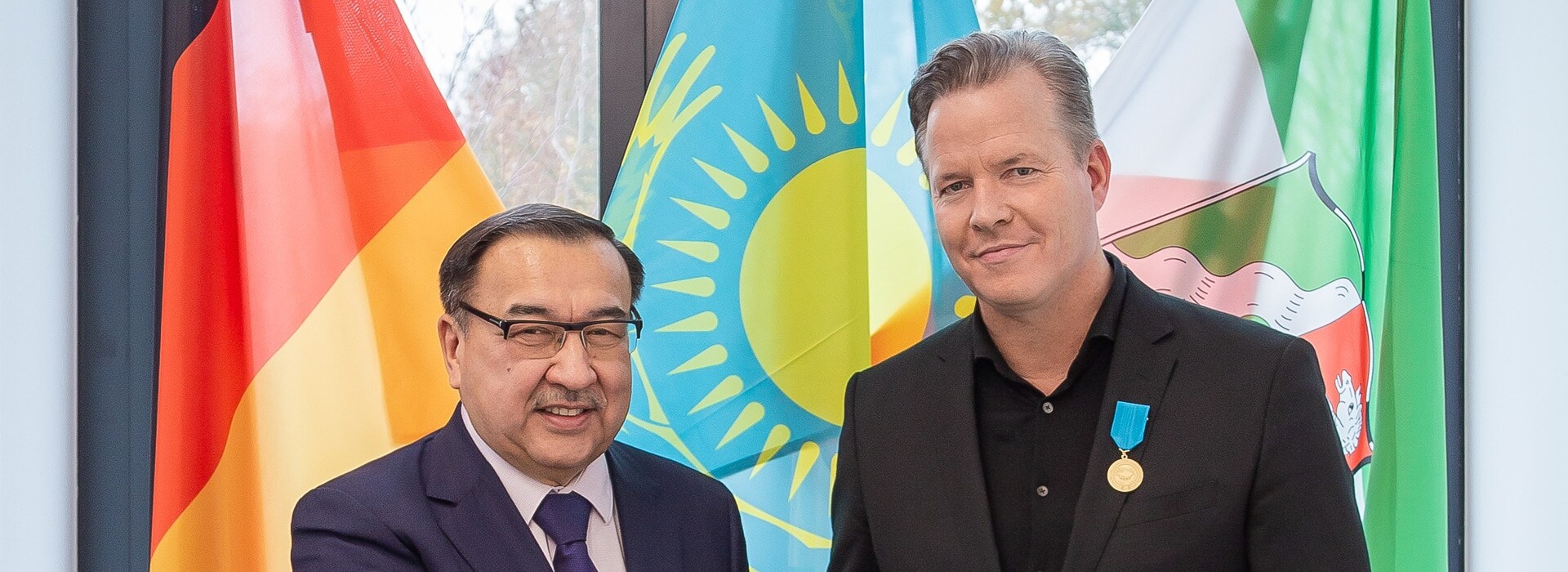Corporate Political Responsibility
In 2021, the Wilo Group signed the “Business Ambition for 1.5 °C” pledge, a global initiative led by the Science Based Targets Initiative (SBTi) which, in cooperation with the UN Global Compact and the “We Mean Business” coalition, is aiming to cut carbon emissions to net zero by no later than 2050. The Group is thus joining the international Race To Zero campaign, the aim of which is to actively accelerate the transformation to a low-carbon economy.

The innovation and ambition of the private sector are crucial
“As one of the world’s leading providers of high-efficiency pumps and pump systems, we are making a key contribution in the global fight against climate change,” says Oliver Hermes, President and CEO of the Wilo Group. “We are actively working to achieve climate neutrality – both within our company and through associations and in conjunction with initiatives such as the Race To Zero campaign.”
The 26th UN Climate Change Conference (COP26) once again made it clear: We all have to do even more for sustainable development and global climate protection. Even before the climate summit, Wilo was sending a message in the fight against climate change, as one of 778 companies calling on heads of state and government of the G20 to take action to limit the average global rise in temperatures to 1.5 °C.
'Climate neutrality is a top priority within the Wilo Group. We are therefore actively involved in associations and initiatives such as the Race-To-Zero campaign. As a climate protection pioneer, a green economy is our goal.'
But COP26 was not just a forum for political decisions – industry leaders also took advantage of the opportunity to discuss the climate agenda. As one of “50 Sustainability & Climate Leaders” at the “Vision 2045 Summit”, Wilo monitored the climate policy negotiations and discussed scalable and reproducible business solutions that support genuine system change.
Following the world climate conference, it is clear that businesses will play a decisive role in achieving the goals of the Paris Agreement and the Glasgow Climate Pact. “We have the innovation, the tools and the expertise to do this – what we need now is leadership,” says Oliver Hermes. The EU has placed the correct emphasis with the Green Deal.
Businesses and politics cannot operate in isolation from one another
"The digital transformation and climate change are the absolute top priorities for the future," says Oliver Hermes. The President therefore welcomes the political decision to launch a European Future Fund, which will give companies that focus on climate protection the chance to even better position themselves on the global markets. The products, systems and solutions that protect the climate are typically also those with the most digital intelligence. The aim of the European Future Fund is therefore to combine and coordinate the components of “climate protection” and “digital transformation”. However, the challenge now is to bring these to life and implement them as quickly as possible.
Whether in industry, transport or the heating sector: Our society needs green energy in all areas of life. To make this possible, we require a solution that is both carbon-free and capable of being stored and transported: hydrogen. It has enormous potential as an energy source for the future. Hydrogen is already more than a vision for the future at Wilo today. Many of the necessary technologies are already covered by the company’s core business.
The President and CEO of the Wilo Group emphasised the key significance of hydrogen for the competitive capability and energy-independence of the German economy. “To date, however, the approval channels are still too vague and too slow. Federal and state governments have to find a solution quickly to enable Germany to assume a leading position in this future technology,” demands Oliver Hermes.
'As a global enterprise, we realise the necessity of working together across borders and generations in international cooperations in this context. This is the only way to ensure a sustainable path.'
“Decoupling” is the counterdraft to multilateralism
Multinational cooperations are on the wane, alliances are crumbling, economic bridges between nations and thus politically different systems are being torn away. This is described as the decoupling of global developments.
However, global challenges such as climate change can only be overcome by working together, by thinking globally and by not resorting to national reflexes. The world today is facing unprecedented and interconnected ecological challenges. We need global cohesion if we are to adapt to the changing circumstances.
“As a global enterprise, we realise the necessity of working together across borders and generations in international cooperations in this context. This is the only way to ensure a sustainable path,” says Oliver Hermes, President and CEO of the Wilo Group.




